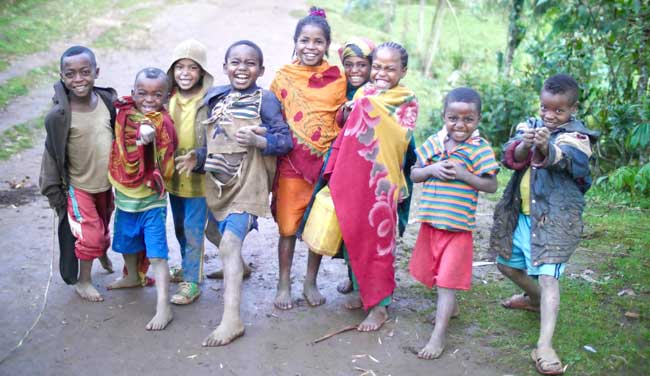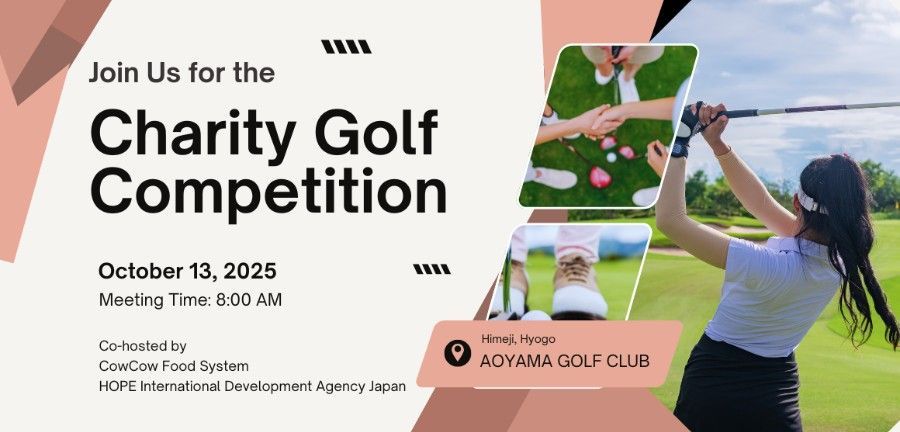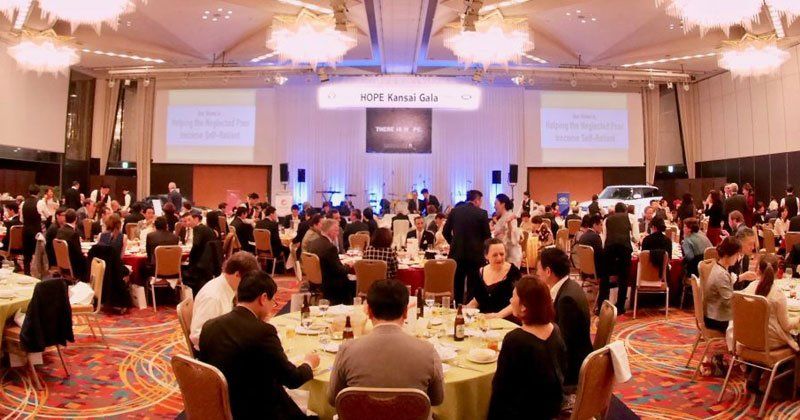Building a community that nurtures children
The circumstances of children in Ethiopia
Ethiopia is a nation of about 100 million people located in East Africa. More than 40% (43.2%) of the population is under 15 years old, and it is said that women on average give birth to 5 children (4.91) in their lifetime. As the national economy is developing, the ratio of children is on a decreasing trend, but it can still be said that the country has more children than Japan (Japan : children under 14 years of age makeup 12.71% of the population, the average birth rate is 1.42)
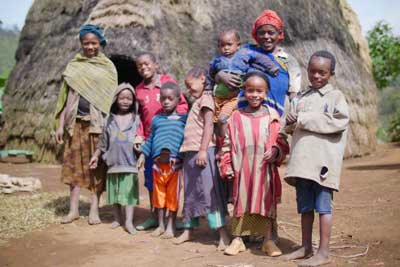
There are many large families in the remote villages of southern Ethiopia. It is not uncommon for a mother to have ten children. Unfortunately, many children do not make it to their 5th birthday, as 18.9 million children under the age of 5 or roughly 6 in 100 (5.9%) children die every year. This is roughly 20 times higher than Japan (In Japan, about 3 out of 1,000 children die under 5 years of age)
In face of these realities, what is HOPE doing to address this problem?
The following is what we can do to help protect these children's future.
Children's lives can be transformed with clean water
Providing safe access to clean water is one of the main goals of HOPE’s interventions. Access to clean water through water supply points not only prevents the spread of waterborne diseases but also reduces the physical burden of fetching water. In the rural villages, fetching water is a daily chore often borne by children (especially girls), who typically carry more than 10 liters of water in jerry cans on their backs for more than 30 mins on foot on the steep and dangerous mountain roads and paths. The importance of a water supply point is very significant to the children who bear this labour of fetching water several times a day since this chore costs them of their energy and time away from school.
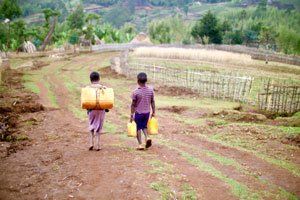
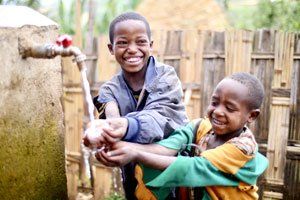
Children's participation in our project
Children are also important members of the community. HOPE encourages children to proactively participate in our projects.
For example, children take the initiative in collecting stones necessary for the construction of latrines at the elementary school. Schools also form a student association called WaSH clubs (Water, Hygiene & Sanitation), which provides hygiene and sanitation knowledge to their classmates and to children from lower grades. These club members, in the spirit of self-reliance, are also put in charge of managing the school water supply points and the toilets.
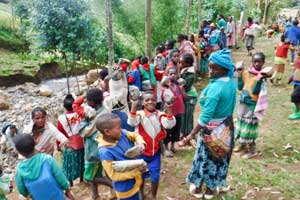
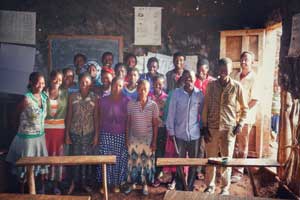
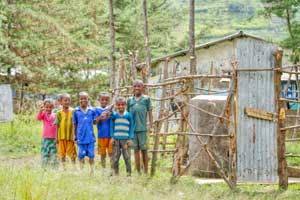
Hygiene & Sanitation practices and family planning
Educating children and mothers raising children on proper hygiene and sanitation practices is an important aspect of HOPE's program.
In February of this year, in collaboration with JICA's Japan Overseas Cooperation Volunteers, we conducted a lesson to children on hand washing in a village at one of our sites. Hand washing is a very effective and a simple daily practice in preventing waterborne diseases. Together with JICA, a ‘hand washing song’ was made in the local Gamo language to teach children on the importance of washing our hands.
To protect families and the lives of children, it is important for mothers to understand the risk of diseases to their children, and the importance of family planning and the use of contraceptives in tackling the pressures of raising large families. HOPE works together with the local health clinics to promote and spread knowledge on health issues.
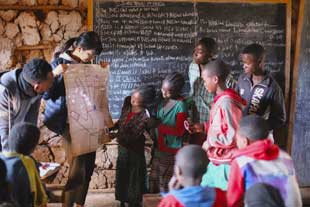
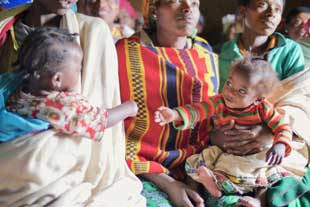
Providing children with bright futures
In remote communities, children are the hope for the villages' future.
HOPE supports children so they can live healthy lives and grow into adults who can contribute to the development and prosperity of their communities.
Thank you for your understanding and cooperation for enabling many children to have futures and enabling them to contribute to their communities.

